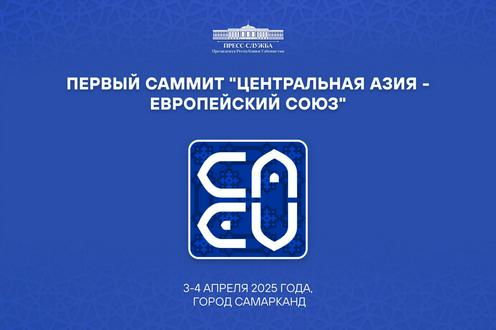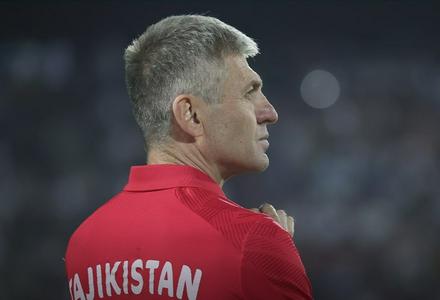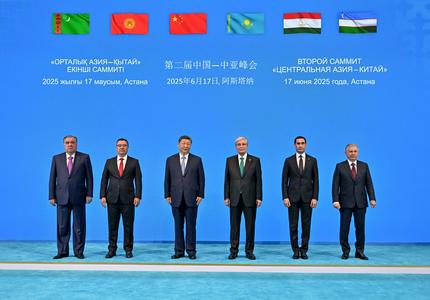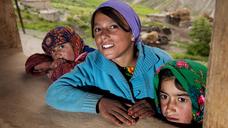Presidents from Kazakhstan, Kyrgyzstan, Tajikistan, and Turkmenistan, attending the “Central Asia–European Union” summit in Samarkand, held bilateral talks with top officials from the European Council, European Commission, and the European Bank for Reconstruction and Development (EBRD).
According to the press service of President Kassym-Jomart Tokayev, the Kazakh leader met with European Council President António Costa. Tokayev highlighted the European Union as Kazakhstan’s largest trading partner and foreign investor, accounting for over 40 percent of the country’s total direct investment inflows. In 2023, trade volume between Kazakhstan and the EU reached €50 billion, representing 80 percent of the EU’s total trade with Central Asia.
In light of these figures, both sides discussed strengthening economic ties and building a global partnership based on trust, strategic interests, and long-term goals.
Tokayev also met with European Commission President Ursula von der Leyen. He emphasized energy, infrastructure, industrial projects, transportation, logistics, and innovative technologies—including artificial intelligence—as priority areas for cooperation. Von der Leyen, in turn, underscored the importance of the Trans-Caspian Transport Corridor and congratulated Tokayev on the recent discovery of a major rare earth metals deposit in Kazakhstan.
Kyrgyz President Sadyr Japarov held talks with EBRD President Odile Renaud-Basso, thanking the institution for its contributions to Kyrgyzstan’s energy sector. He cited the establishment of a Donor Coordination Committee to support the strategic construction of the Kambarata Hydropower Plant-1.
Japarov emphasized the importance of EBRD priorities such as green economy initiatives and biodiversity preservation. He noted the region’s openness to collaboration with international financial institutions to tackle environmental challenges and mitigate climate change effects.
Renaud-Basso affirmed the EBRD's position as one of Kyrgyzstan’s major investors, with total investments exceeding $1 billion.
“Last year, $52 million was invested in the country’s real economy,” she said. “We are now considering increasing this amount. For 2024, we’ve already signed 11 projects, notably in the energy and irrigation sectors.”
She also announced the launch of a $100 million project to expand access to clean drinking water across 25 communities, and discussed the EBRD's support for reconstructing the Kara-Balta–Chaldybar highway to enhance links with the Trans-Caspian International Transport Route.
Japarov is also scheduled to meet with Costa and von der Leyen, his office noted.
Meanwhile, Tajik President Emomali Rahmon has already met with all three EU institution leaders. In his meeting with Costa, Rahmon called the EU one of Tajikistan’s most important international partners, highlighting joint efforts in hydroelectric infrastructure reconstruction and development. He expressed a strong interest in attracting European investment and technology for the construction of the Rogun Dam and modernization of the Nurek Dam. Costa praised Tajikistan’s progress in resolving border disputes with Kyrgyzstan and Uzbekistan, calling it a historic achievement.
In talks with von der Leyen, Rahmon confirmed Tajikistan’s commitment to the regional “road map” for cooperation and expressed interest in contributing to an EU–Central Asia satellite link, as well as developing joint AI initiatives. He also assured that Tajikistan would host European guests with due diligence at the upcoming International Conference on Glacier Preservation in Dushanbe this May.
During his meeting with Renaud-Basso, Rahmon noted that the EBRD has implemented 184 projects in Tajikistan worth over $1 billion, targeting the financial sector, private enterprise, and transport and energy systems. They agreed to continue working together, with a focus on the green agenda.
Turkmen President Serdar Berdimuhamedov also met with Renaud-Basso. The two sides affirmed the strength and longevity of their partnership, highlighting cooperation in energy, transport, and the digital economy as key areas for expansion.
The first “Central Asia–European Union” summit is being held in Samarkand on April 3–4. Participants include European Council President António Costa, European Commission President Ursula von der Leyen, and the heads of state of Uzbekistan (Shavkat Mirziyoyev), Kazakhstan (Kassym-Jomart Tokayev), Kyrgyzstan (Sadyr Japarov), Tajikistan (Emomali Rahmon), and Turkmenistan (Serdar Berdimuhamedov).
Held under the theme “Investing in the Future,” the summit also includes leaders from the European Bank for Reconstruction and Development and the European Investment Bank. Discussions are focused on expanding multifaceted relations and practical cooperation between the region and the EU.










